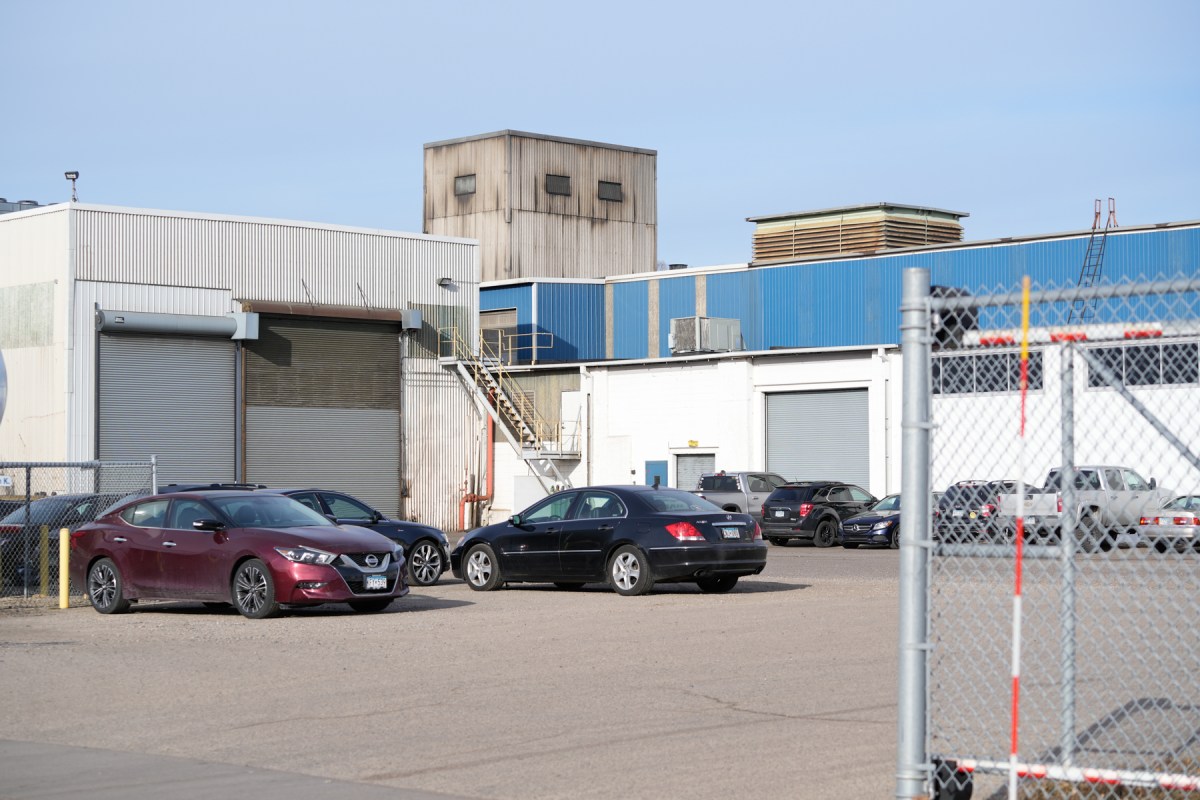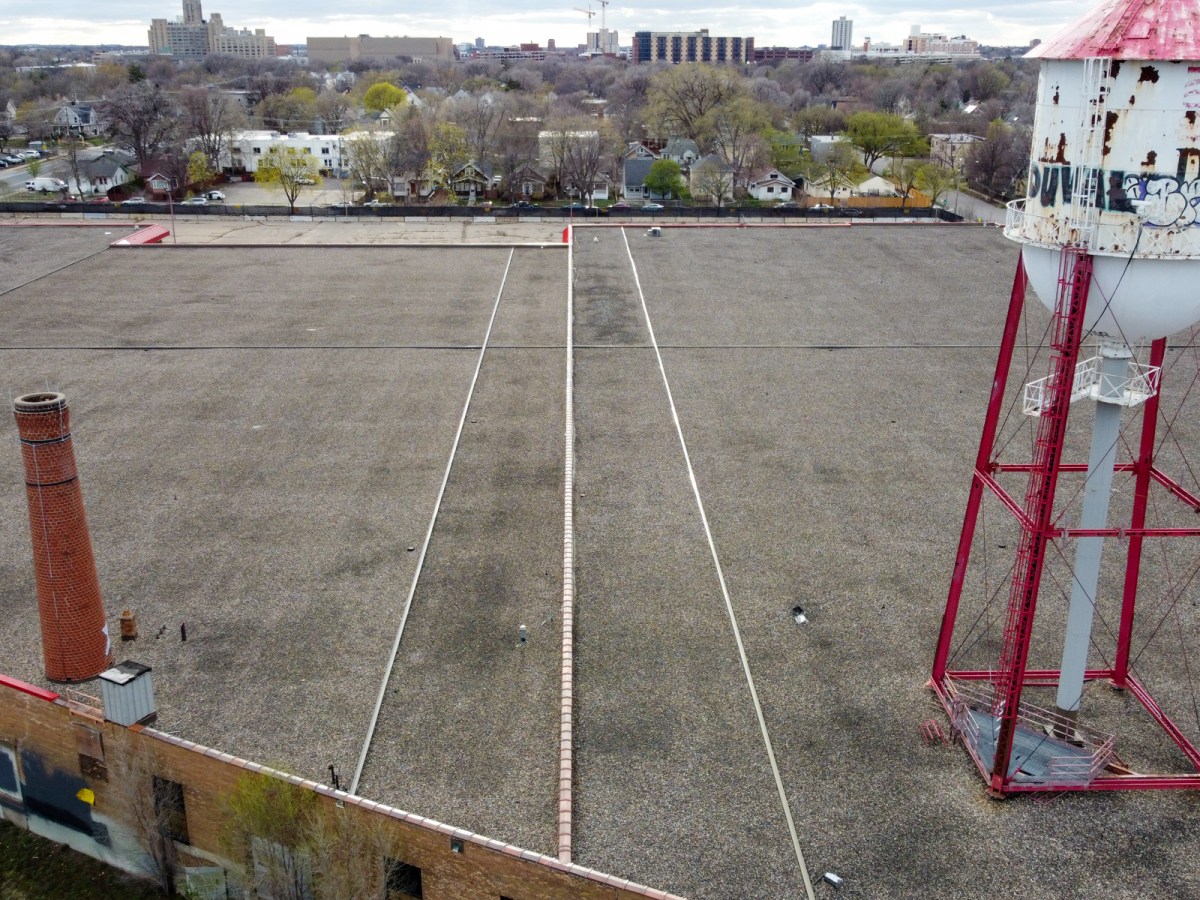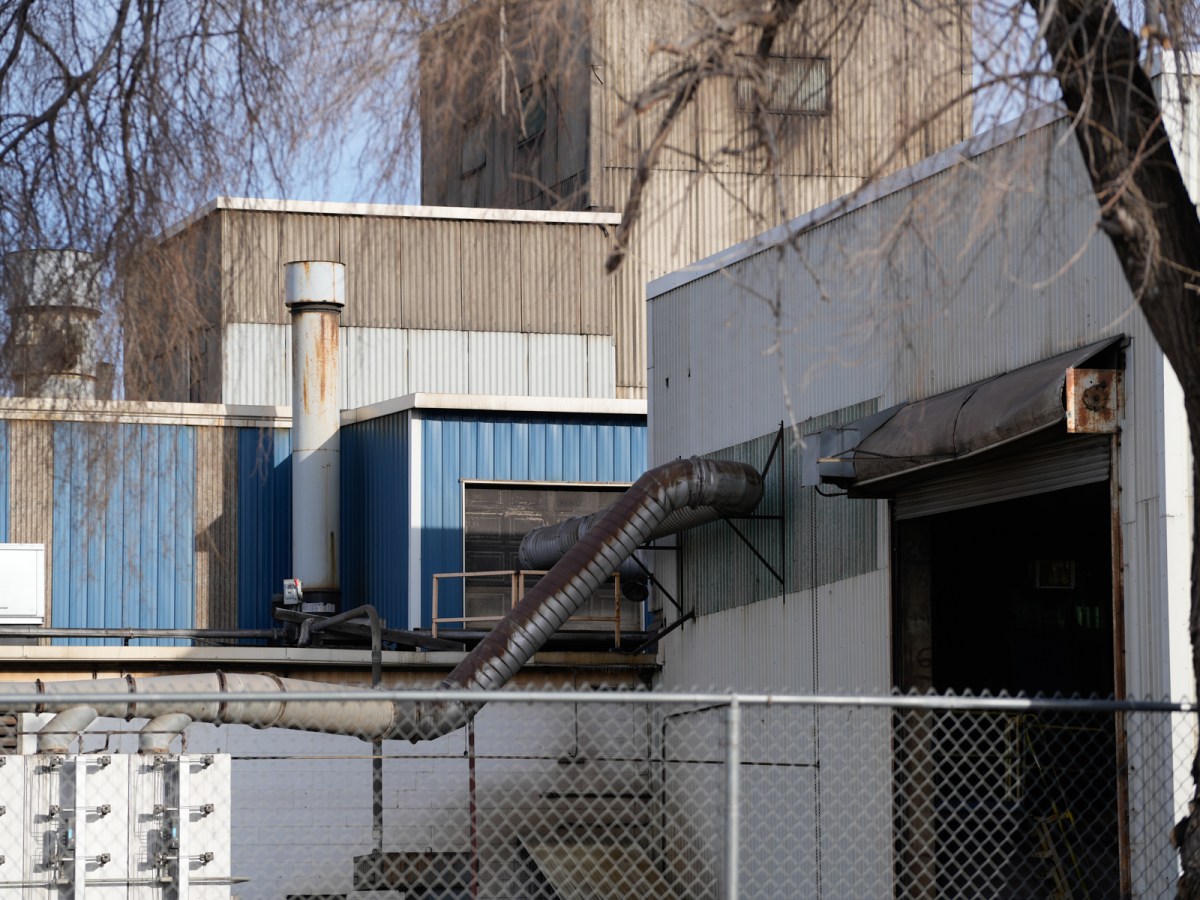Residents of St. Paul’s East Side are demanding to know when emissions from a polluting metal foundry in their neighborhood will decrease, and how they can determine if their families are safe.
Dozens of residents packed a meeting Tuesday evening hosted by the Payne-Phalen Community Council to learn more about pollution and compliance issues at the century-old foundry, Northern Iron. They pressed the company’s chief executive officer for answers, and criticized the state for how it’s handling the matter.
“People matter—people matter here on the East Side,” said Lynette Harris, a board member of the Payne-Phalen Community Council.
Last week, the Minnesota Pollution Control Agency (MPCA) ordered Northern Iron to reduce its particulate matter and lead emissions after new projections showed it is likely spewing high levels of pollution. The foundry, located on Forest Street near Phalen Boulevard, has until May 16 to demonstrate improvements.
The order comes in the wake of a $41,500 fine levied by the MPCA against Northern Iron last October for repeated violations related to installing and removing equipment without properly notifying state regulators.
Harris said she wants to see more public education and tests for area residents to measure lead levels in their blood. She was startled by how close the foundry is to homes in the neighborhood, and was fearful of the public health impact.
“Funding should come from Lawton for community testing and education,” Harris said of the company that owns the foundry.
Northern Iron was purchased in 2022 by Lawton Standard, a company that operates foundries across the country. CEO Alex Lawton fielded questions from community members Tuesday night, and said the foundry will take the necessary steps to come into compliance. The foundry is working with the MPCA to obtain a new permit that fits its operation, he added.
The foundry is making several repairs to the building and is covering external air ducts and unfiltered vents in order to meet state standards, Lawton said. If needed, he said, it will cut operating hours to reduce emissions by May 16.
The foundry has ordered several new pieces of pollution mitigation equipment, Lawton said, and is working to have a new permit with the MPCA by September. He said his company didn’t know the extent of Northern Iron’s issues when it was purchased, but will try to go beyond state standards for environmental controls.
“I certainly wouldn’t move into a residential area and build a foundry, so we’ve got to run the best one we can in the spot we’ve got,” Lawton said.
The MPCA announced last week that it received emission projection data about the facility in February, which showed that the foundry is “very likely” to expel excessive levels of particulate matter into the air. Those projections, known as modeling, are essentially scientific estimates based on operating hours, material inputs, and meteorological data.
Based on the findings, the MPCA opened a new enforcement action against Northern Iron to require the facility to lower the pollution levels by May 16.
The fine levied against Northern Iron in 2023 emerged from years of the foundry adding and altering operational equipment without notifying state regulators. By not informing the state of changes made at the foundry between 2007 and 2021, it prevented regulators from accurately estimating emissions. The process resulted in orders for more updated emission projections, which is known as modeling.
Lead concerns
Issues at Northern Iron echo problems at Smith Foundry in south Minneapolis, where the federal Environmental Protection Agency found excessive pollution and is in an enforcement action to bring the facility into compliance with state and federal standards.
Both foundries are about 100 years old and are located in old, industrial areas where people of color were able to buy homes. That redlining legacy continues today, with diverse, working class neighborhoods surrounding the foundries.
Like Smith Foundry, Northern Iron was purchased by a larger company in 2022. Both foundries failed to properly maintain operational records and properly notify state regulators about changes to pollution control equipment.
Lawton told neighbors that Northern Iron does not use lead in its manufacturing process, and is starting to test scrap metal used at the plant to determine lead content.
Smith Foundry also said it does not use lead in its operations, but testing conducted at the foundry in December 2023 showed that the facility was expelling lead emissions. Those lead pollution levels were low, according to the MPCA, but there are no known safe levels of lead exposure, according to public health experts.
The MPCA noted last week that Northern Iron likely emitted excessive lead and particulate matter pollution, and issued the 30-day order to Northern Iron based on modeling received this February.
But an internal MPCA memo dated February 28, 2023, reviewed by Sahan Journal showed that MPCA engineers believed that lead levels from Northern Iron may have been exceeding federal standards more than a year ago.
MPCA engineers ran three models to gauge lead pollution from the foundry under various levels of operation. All of the models showed that the level of projected lead pollution at the facility would likely exceed federal standards, according to the MPCA document.
“Based on the information available to the MPCA modeling staff this modeling demonstration does not demonstrate compliance with the Pb [lead] 3-month rolling average NAAQS [National Ambient Air Quality Standards],” the memo states.
The agency said the modeling conducted in February 2023 did not meet all qualifications required by the EPA to ensure accuracy, and that the state later required Northern Iron to conduct more stringent modeling as part of the enforcement action completed last year. That modeling ultimately lead to the order to lower emissions this month.
Frustration with regulators
Neighbors and board members of the Payne-Phalen Community Council expressed frustration with MPCA staff at Tuesday’s meeting, and were upset that the state could not provide more specifics about how much lead or particulate matter is in the air.
The MPCA installed two air monitors near the foundry, which are now operational after some inconsistent power issues. But neighbors lamented the time it took to get those monitors installed, and called for more monitors in all directions around the facility.
“There is frustration that MPCA, which is supposed to protect us, hasn’t moved as fast as we’ve wanted to,” said state Representative Liz Lee, DFL-St. Paul, who represents the area.
Lee said she doesn’t give the foundry’s new owners a pass, and that it’s important that polluting companies pay fines that support public health initiatives in the community so the burden doesn’t fall on local property taxpayers. She also expressed concern for foundry workers’ safety.
The community council wants to see the $41,500 fine levied against Northern Iron go back to the neighborhood to pay for public health measures such as lead testing for children. But that would require a change to state law. A new law in 2023 sets aside 40% of pollution fines toward affected areas, but is only triggered for civil penalties of $250,000 or more.
“I think the MPCA has dropped the ball,” said Rebecca Nelson, president of the Payne Phalen Community Council.
People can view real time data on particulate matter pollution near the foundry online at PurpleAir.com (sensor number 0890). Lead pollution evaluation requires more time to tabulate, but answers should be available in May, according to the MPCA.
“We want to provide these details and want to answer these questions,” said Courtney Ahlers-Nelson, the industrial division director at the MPCA.
The agency will host an informational meeting about Northern Iron at the East Side YMCA, 875 Arcade Street, on May 22 at 5:30 p.m. Representatives from the EPA and public health agencies will also be in attendance.






